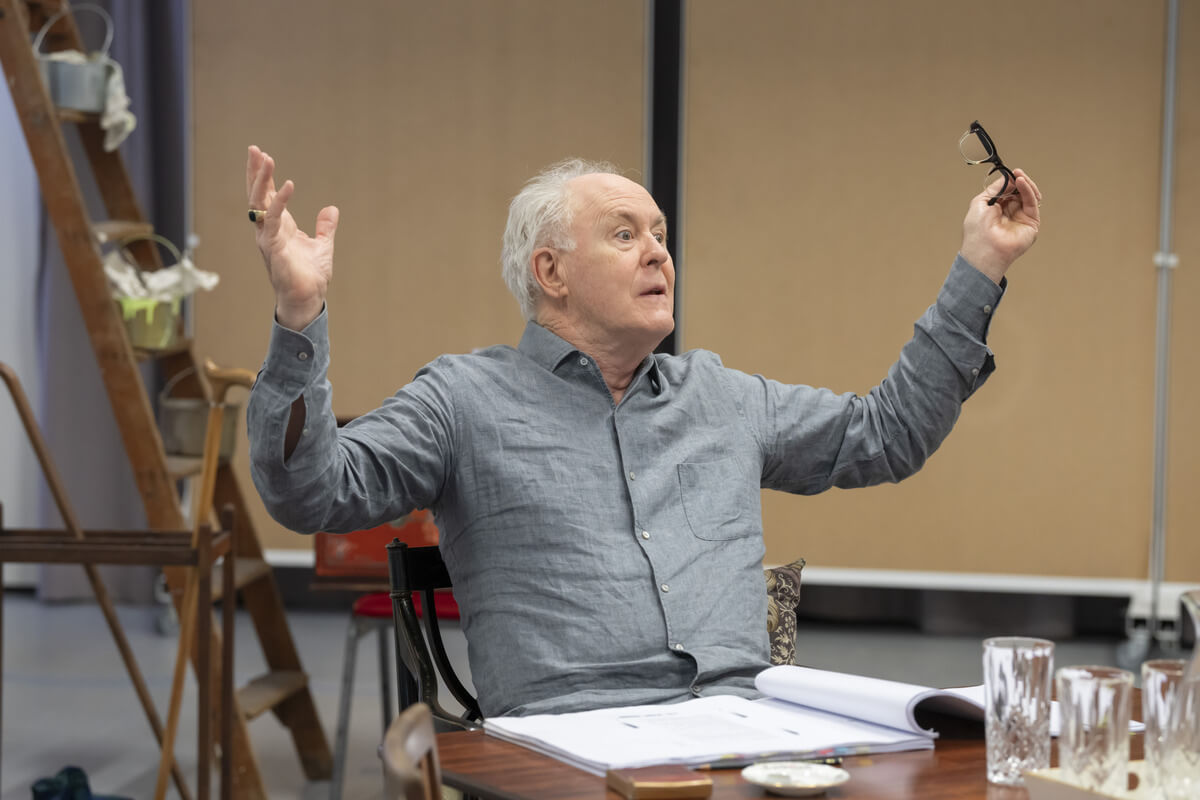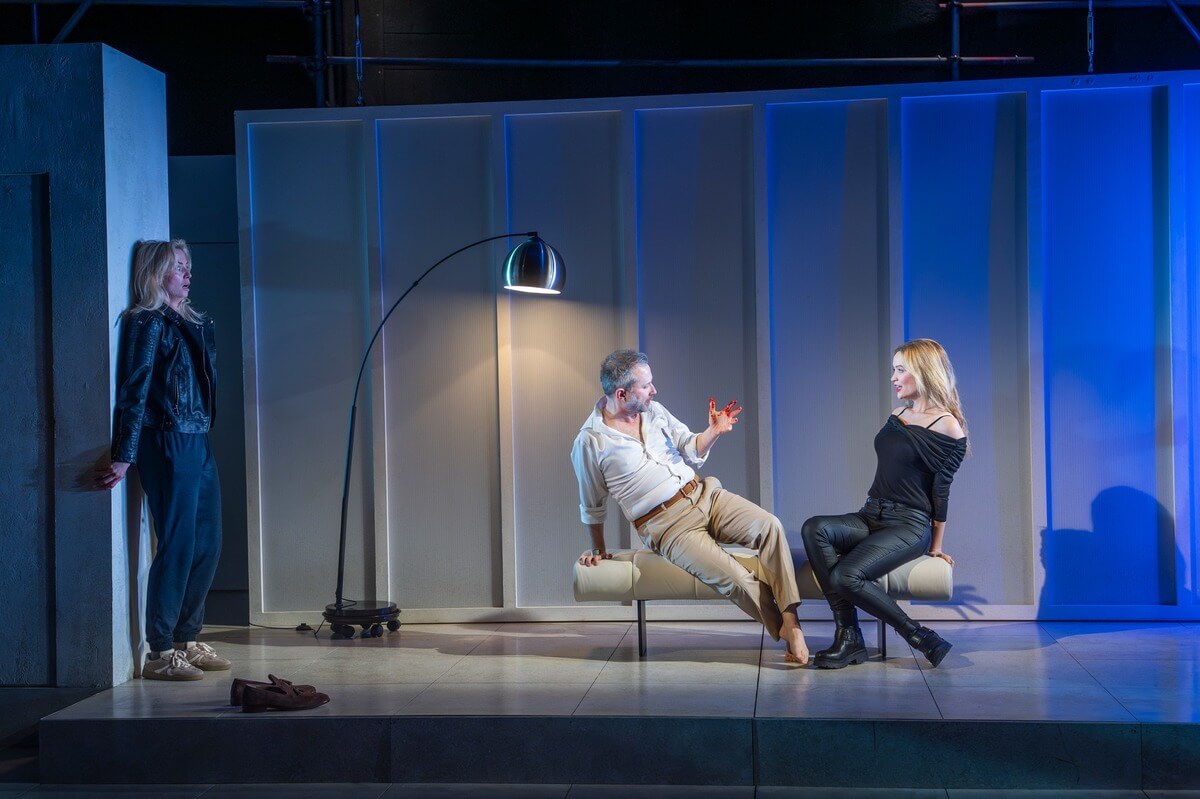After twenty-nine years of marriage, Anne (Kacey Ainsworth) and Don (Liam Tobin) know each other pretty well. He’s a bit of a lazy slob who passes the day reading the Daily Mail in his vintage tat shop, while she works as a receptionist on an NHS ward. The soundtrack to the period in which they met, includes most notably, Annie Lennox hits and when the pair dance in the cramped living room, they could pass for anybody’s embarrassing aunt and uncle at a wedding. Since their two sons left home, a dullness and complacency has enveloped their routine and Anne has had enough of waiting for things to get better, waiting for the house to get decorated, and waiting for Don to get a proper job instead of languishing in seclusion.
Ainsworth and Tobin’s familiarity and banter is never forced and the play could quite easily be formatted as a television drama given the naturalistic, almost kitchen sink acting styles on display. They perfectly match one another in tempo and temperament, at once goading and joshing one another, then barking irritatedly. As the daily death toll is announced on news bulletins, and weeks turn into months of claustrophobic cohabitation, fractious exchanges become more frequent and long-standing resentments are aired, often repeatedly.
Coinciding with BoJo’s announcement of the vaccine roll-out, any remaining semblance of unity evaporates as Don insists on asserting his conjugal rights despite Anne’s protestations, and then refuses to get jabbed due to a belief that the vaccines are unproven and potentially dangerous. Rape within marriage has been a hot topic for some time, and coupled with Anne’s references to feeling unattractive due to changes in her body and the menopause, strikes a salutary and plaintiff chord when the man in the equation can see nothing but his own needs and wants. Worse still, when he thinks he can justify his behaviour by explaining that he still finds her attractive, there is a seismic deterioration in love and respect. Don’s inevitable contraction of the virus leads to yet more arguments and soul searching, forgiveness and life adaptations.
Everyone’s efforts result in a tight little two hander, directed with a sense of pace, brittleness and empathy by Scott Le Crass. Thankfully the events of the period feel like a distant memory as we look to a world seemingly determined to find new ways in which to embrace global instability.
Plays at Park Theatre until 26th April.

 Jab at Park Theatre. Credit Steve Gregson.
Jab at Park Theatre. Credit Steve Gregson.

